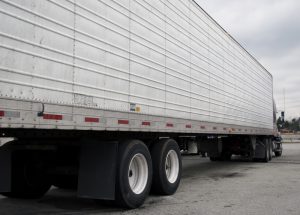Filing A Trucking Accident Claim
Motorists injured in a trucking accident or a crash involving a semi-truck may bring a negligence claim against the at-fault driver, corporate owner and insurer of the truck.
In this negligence claim, injured motorists may recover damages for their injuries that aren’t covered by no-fault PIP benefits. Those damages include:
- non-economic damages, which are typically referred to as “pain and suffering” damages.
- excess economic loss damages, which includes the value of any work loss that he or she may suffer beyond the three-year period provided for in the person’s PIP benefits.
Despite the similarities to other types of injury claim brought under Michigan’s no-fault law, there are many special issues involved in trucking accidents and the claims can be quite complicated. For this reason, persons who are injured in an accident with a large truck should contact an experienced Michigan semi-truck accident lawyer for legal assistance.
Elements Of A Semi-Truck Negligence Claim
When bringing a negligence claim against a semi-truck operator, insurer or company, an injured motorist must prove four basic elements:
- the driver and/or owner of the semi-truck owed the injured motorist a legal duty;
- the driver or owner breached that legal duty;
- the motorist was injured; and
- the motorist’s injuries were caused by the driver or owner’s breach of the legal duty.
Defining The Legal Duty In Trucking Accidents
Defining the legal duty owed to the motorist is a crucial step in any negligence case. Normally, motorists have a legal duty to comply with traffic safety rules and regulations. However, semi-trucks are subject to additional rules and regulations created by the United States Department of Transportation’s Federal Motor Carrier Safety Administration.
These rules govern a number of critical issues regarding semi-trucks and their operation, including maintenance standards, the number of hours that drivers may operate a truck, and special safety precautions for the hauling of dangerous materials. These regulations help to define the particular legal duties which are owed to all motorists by semi-truck drivers, owners, and insurers.
Michigan has also adopted and codified the federal guidelines as part of the Motor Carrier Safety Act (MCL 480.11, et seq.). In many cases, the failure to comply with these state or federal rules may amount to legal negligence.
Trucking Accidents And The Threshold Injury Requirement
It is important to note that the third element of a negligence claim — that the person must have suffered an injury — is limited to only certain types of injuries. In other words, not every injury is compensable. Rather, the injured motorist must show that his or her injuries amounted to what is called a “threshold injury.”
Under the Michigan no-fault law, a threshold injury is met if the injured motorist suffered a “serious impairment of a body function,” “permanent serious disfigurement” or death. The definitions of the types of injuries which meet this threshold standard are frequently the subject of reinterpretation by the courts. As such, motorists injured in accidents involving large trucks are encouraged to contact a Michigan semi-truck accident attorney to discuss the matter.
Insurance Issues Related To Semi-Trucks
Oftentimes, there are many complex insurance issues in a semi-truck accident case. These issues must be resolved quickly in order to identify the proper defendant in the case and preserve the injured victim’s claim.
Semi-trucks and other large vehicles can carry multiple insurance policies. There may be one policy insuring the truck, while another policy insures the driver. Additionally, some companies employ separate policies to insure the trailer. And the goods inside the truck’s trailer may also carry their own individual policy.
Determining which policies may provide coverage for a motorist’s injuries can be tricky, but is essential to obtaining benefits. If the proper defendants and liability policies are not identified, the injured motorist may miss recovering compensation to which he or she is otherwise entitled.
If you’ve been injured in a trucking accident, it is highly recommended that you consult with a knowledgeable trucking accident lawyer, who can help pinpoint the insurance coverage that’s involved.
